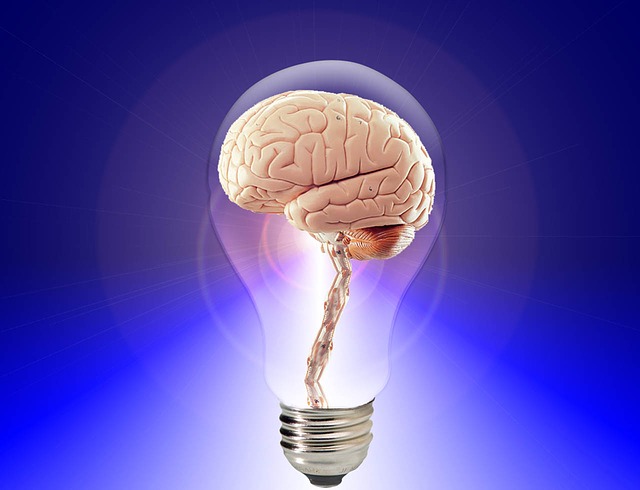We reach more than 65,000 registered users in Dec!! Register Now

Does "free will" stem from brain noise?
- June 15, 2014
- 801 Views
- 0 Likes
- 0 Comment
Our abil≠ity to make choic≠es-and mis≠takes-might arise from ran≠dom fluctua≠t≠ions in the brain's back≠ground elec≠tri≠cal "noise," ac≠cord≠ing to a study from the Uni≠vers≠ity of Cal≠i≠for≠nia, Da≠vis. "How do we be≠have in≠de≠pend≠ently of cause and ef≠fec≠t?" said Jes≠se Beng≠son, a post≠doc≠tor≠al re≠search≠er at the uni≠vers≠ity's Cen≠ter for Mind and Brain and an ...
Our abil≠ity to make choic¬≠es-and mis¬≠takes-might arise from ran¬≠dom fluctua¬≠t¬≠ions in the brain's back¬≠ground elec¬≠tri¬≠cal ‚Äúnoise,‚ÄĚ ac¬≠cord¬≠ing to a study from the Uni¬≠vers¬≠ity of Cal¬≠i¬≠for¬≠nia, Da¬≠vis.
‚ÄúHow do we be¬≠have in¬≠de¬≠pend¬≠ently of cause and ef¬≠fec¬≠t?‚ÄĚ said Jes¬≠se Beng¬≠son, a post¬≠doc¬≠tor¬≠al re¬≠search¬≠er at the uni¬≠vers¬≠ity's Cen¬≠ter for Mind and Brain and an au¬≠thor on a re¬≠port on the work. ‚ÄúThis shows how ar¬≠bi¬≠trary states in the brain can in¬≠flu¬≠ence ap¬≠par¬≠ently vol¬≠un¬≠tary de¬≠ci¬≠sions.‚ÄĚ
The brain has a nor¬≠mal lev¬≠el of ‚Äúback¬≠ground noise,‚ÄĚ Beng¬≠son said, as elec¬≠tri¬≠cal ac¬≠ti¬≠vity pat¬≠terns fluc¬≠tu¬≠ate across the brain. In the new stu¬≠dy, de¬≠ci¬≠sions could be pre¬≠dicted based on the pat¬≠tern of brain ac¬≠ti¬≠vity im¬≠me¬≠di¬≠ately be¬≠fore a de¬≠ci¬≠sion was made.
Beng­son sat vol­un­teers in front of a screen and told them to fix their at­ten­tion on the cen­ter, while us­ing elec­tro­en­ce­pha­lo­grapy, or EEG, to rec­ord their brains' elec­tri­cal ac­ti­vity. The vol­un­teers were in­structed to make a de­ci­sion to look ei­ther to the left or to the right when a cue sym­bol ap­peared on screen, and then to re­port their de­ci­sion.
The cue to look left or right ap­peared at ran­dom in­ter­vals, so the vol­un­teers could not con­sciously or un­con­sciously pre­pare for it.
The brain has a nor¬≠mal lev¬≠el of ‚Äúback¬≠ground noise,‚ÄĚ Beng¬≠son said, as elec¬≠tri¬≠cal ac¬≠ti¬≠vity pat¬≠terns fluc¬≠tu¬≠ate across the brain. The re¬≠search¬≠ers found that the pat¬≠tern of ac¬≠ti¬≠vity in the sec¬≠ond or so be¬≠fore the cue sym¬≠bol ap¬≠peared-be¬≠fore the vol¬≠un¬≠teers could know they were go¬≠ing to make a de¬≠ci¬≠sion-could pre¬≠dict the likely out¬≠come of the de¬≠ci¬≠sion.
‚ÄúThe state of the brain right be¬≠fore pre¬≠s¬≠enta¬≠t¬≠ion of the cue de¬≠ter¬≠mines wheth¬≠er you will at¬≠tend to the left or to the right,‚ÄĚ Beng¬≠son said.
The ex­pe­ri­ment builds on a fa­mous 1970s ex­pe­ri­ment by Ben­ja­min Li­bet, who meas­ured brain elec­tri­cal ac­ti­vity im­me­di­ately be­fore a vol­un­teer made a de­ci­sion to press a switch in re­sponse to a vis­u­al sig­nal. He found brain ac­ti­vity im­me­di­ately be­fore the vol­un­teer re­ported de­cid­ing to press the switch.
The new re¬≠sults build on Li¬≠bet's find¬≠ing, be¬≠cause they pro¬≠vide a mod¬≠el for how brain ac¬≠ti¬≠vity could pre¬≠cede de¬≠ci¬≠sion, Beng¬≠son said. Ad¬≠di¬≠tion¬≠al¬≠ly, Li¬≠bet had to rely on when vol¬≠un¬≠teers said they made their de¬≠ci¬≠sion. In the new ex¬≠pe¬≠ri¬≠ment, the ran¬≠dom tim¬≠ing means that ‚Äúwe know peo¬≠ple aren't mak¬≠ing the de¬≠ci¬≠sion in ad¬≠vance,‚ÄĚ Beng¬≠son said.
Li¬≠bet's ex¬≠pe¬≠ri¬≠ment raised ques¬≠tions of free will-if our brain is pre¬≠par¬≠ing to act be¬≠fore we know we are go¬≠ing to act, how do we make a con¬≠scious de¬≠ci¬≠sion to act? The new work, though, shows how ‚Äúbrain noise‚ÄĚ might ac¬≠tu¬≠ally cre¬≠ate the open¬≠ing for free will, Beng¬≠son said.
‚ÄúIt in¬≠serts a ran¬≠dom ef¬≠fect that al¬≠lows us to be freed from sim¬≠ple cause and ef¬≠fect,‚ÄĚ he said. The work is pub¬≠lished on¬≠line in the¬†Jour¬≠nal of Cog¬≠ni¬≠tive Neu¬≠ro¬≠sci¬≠ence.
![human-20424_640[1]](http://machprinciple.com/wp-content/uploads/2014/06/human-20424_6401.jpg)
 
Source : http://www.world-science.net
Cite This Article as
No tags found for this post









